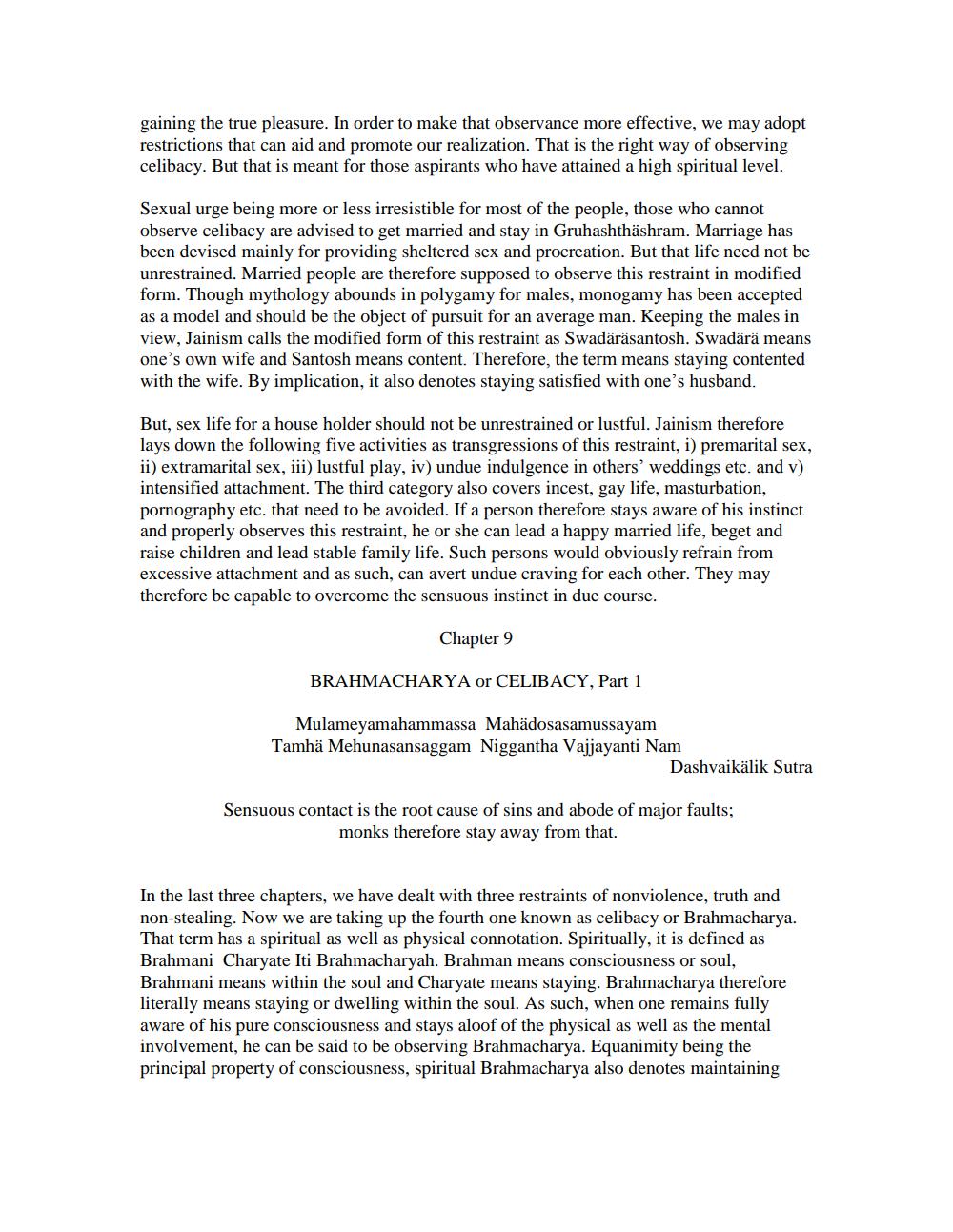________________
gaining the true pleasure. In order to make that observance more effective, we may adopt restrictions that can aid and promote our realization. That is the right way of observing celibacy. But that is meant for those aspirants who have attained a high spiritual level.
Sexual urge being more or less irresistible for most of the people, those who cannot observe celibacy are advised to get married and stay in Gruhashthäshram. Marriage has been devised mainly for providing sheltered sex and procreation. But that life need not be unrestrained. Married people are therefore supposed to observe this restraint in modified form. Though mythology abounds in polygamy for males, monogamy has been accepted as a model and should be the object of pursuit for an average man. Keeping the males in view, Jainism calls the modified form of this restraint as Swadäräsantosh. Swadärä means one's own wife and Santosh means content. Therefore, the term means staying contented with the wife. By implication, it also denotes staying satisfied with one's husband.
But, sex life for a house holder should not be unrestrained or lustful. Jainism therefore lays down the following five activities as transgressions of this restraint, i) premarital sex, ii) extramarital sex, iii) lustful play, iv) undue indulgence in others' weddings etc. and v) intensified attachment. The third category also covers incest, gay life, masturbation, pornography etc. that need to be avoided. If a person therefore stays aware of his instinct and properly observes this restraint, he or she can lead a happy married life, beget and raise children and lead stable family life. Such persons would obviously refrain from excessive attachment and as such, can avert undue craving for each other. They may therefore be capable to overcome the sensuous instinct in due course.
Chapter 9
BRAHMACHARYA or CELIBACY, Part 1
Mulameyamahammassa Mahädosasamussayam Tamhä Mehunasansaggam Niggantha Vajjayanti Nam
Dashvaikälik Sutra
Sensuous contact is the root cause of sins and abode of major faults;
monks therefore stay away from that.
In the last three chapters, we have dealt with three restraints of nonviolence, truth and non-stealing. Now we are taking up the fourth one known as celibacy or Brahmacharya. That term has a spiritual as well as physical connotation. Spiritually, it is defined as Brahmani Charyate Iti Brahmacharyah. Brahman means consciousness or soul, Brahmani means within the soul and Charyate means staying. Brahmacharya therefore literally means staying or dwelling within the soul. As such, when one remains fully aware of his pure consciousness and stays aloof of the physical as well as the mental involvement, he can be said to be observing Brahmacharya. Equanimity being the principal property of consciousness, spiritual Brahmacharya also denotes maintaining




